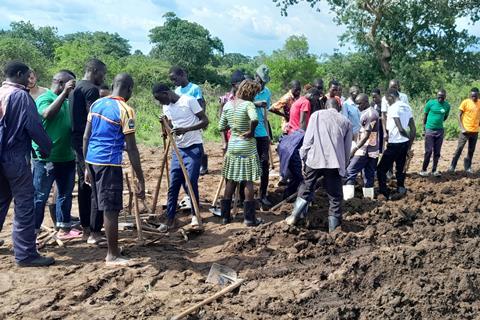British supplier is working to help improve food security in southern African nation
Potato supplier Branston has donated £10,000 to an agricultural training college in Alito, Uganda, as part of a new joint venture.

The college aims to teach farming skills to local people so they can grow their own Irish potatoes, which is a crop not previously grown at the college or widely in the region. After the first crop is grown, each student will be given five kilos of the Irish potato variety to take home when they graduate this summer.
Branston is providing both financial and agronomist support for the first planting at the college, and is aiming to dig 2,000 cubic metre water storage lagoons to allow for water irrigation, which will be needed if the rains during the wet season continue to be erratic.
Several trials are also being carried out on a one-acre test site to provide a teaching plot for the college students and staff to learn about varying levels of fertiliser, planting densities and potato varieties.
Ian Arnold, interim project manager at Branston, recently visited Alito to oversee the land preparation and planting. He said: “This is a fantastic project and a great opportunity for us to give back to the local community at Alito and improve food security. Having access to affordable and nutritious food is crucial throughout the world, so we’re delighted to be contributing to food security in Uganda.
“The college has mainly been training under-25s and their creativity has been brilliant, but the project is also focused on upskilling women in particular, and even provides a creche for those with young children to be able to access education while their children are cared for. We’ve committed to providing three years of training with the college, so we’re eager to continue to help support and educate the Alito community over the next few years.”
More than 100 staff and students participated in the planning on Arnold’s visit. The majority of the potatoes planted by them were Rwangume, a variety developed specifically to be grown in Africa, but the team is also assessing two more common European varieties, Arizona and Markies, to see how they fare in a hot climate.
“We’re hoping to get more of the Branston team out to Alito to oversee the training in action for themselves over the next few years,” Arnold added. ”It’s a rewarding volunteering opportunity for people to learn more about how our work can help communities, and is an investment both professionally and personally.”



